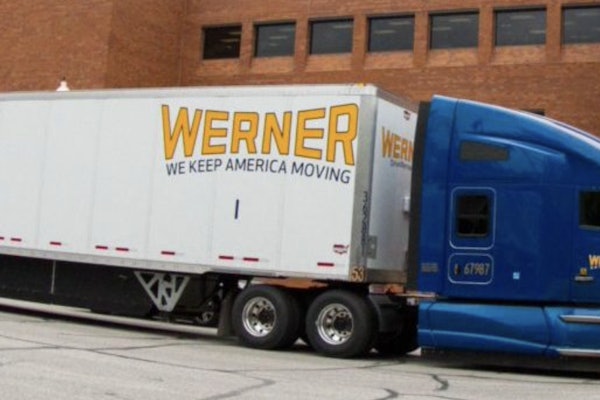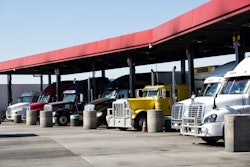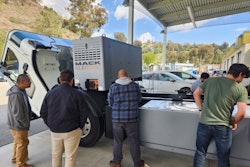Trucking news and briefs for Tuesday, May 17, 2022:
Three new commodities added to soon-to-expire COVID waiver
The Federal Motor Carrier Safety Administration on May 13 amended its COVID-19 emergency declaration by adding three new commodities to the list that qualify for the limited hours of service relief outlined in the declaration's waiver of maximum driving time limits.
Despite being at the end of their traditional winter season, FMCSA has added propane, natural gas and heating oil to the declaration. Other fuels – including gasoline, diesel, jet fuel and ethyl alcohol – were already included in the declaration.
Under the terms of the declaration, carriers hauling these commodities among others in direct assistance in support of relief efforts related to the COVID-19 public health emergency are granted emergency relief from 49 CFR § 395.3, maximum driving time limits.
Unless extended again, the declaration is set to expire May 31.
Other commodities covered by the declaration include:
- Livestock and livestock feed
- Medical supplies and equipment related to the testing, diagnosis and treatment of COVID-19
- Vaccines, constituent products and medical supplies and equipment including ancillary supplies/kits for the administration of vaccines, related to the prevention of COVID-19
- Supplies and equipment necessary for community safety, sanitation and prevention of community transmission of COVID-19 such as masks, gloves, hand sanitizer, soap and disinfectants
- Food, paper products and other groceries for emergency restocking of distribution centers or stores
- Gasoline, diesel, jet fuel and ethyl alcohol
- Supplies to assist individuals impacted by the consequences of the COVID-19 pandemic (e.g., building materials for individuals displaced or otherwise impacted as a result of the emergency)
Carriers who operate under the terms of the declaration are required to report their use of it to FMCSA within five days of the end of each month via their FMCSA portal account.
Driver shortage, marijuana among ATRI’s 2022 Top Research Priorities
The American Transportation Research Institute Board of Directors has approved the 2022 Top Research Priorities, as identified by ATRI’s Research Advisory Committee (RAC).
ATRI’s RAC developed the list of recommended research topics at its meeting held in Dallas, March 15-16, and the ATRI Board reviewed and approved a list of recommended topics at its recent meeting.
ATRI’s RAC selected research topics that are focused on impacts on the industry’s workforce, operational impacts from predatory towing, and expanding the driver population through international work permits.
The 2022 ATRI top research priorities are:
- Marijuana: Impacts of decriminalization on the trucking industry. As more states move to decriminalize marijuana and other Schedule I drugs, this study would update ATRI’s 2019 report by examining roadway safety and workforce impacts in those states that have changed their laws around controlled substances.
- Quantifying industry impacts from predatory towing. Predatory towing can take many forms -- including tow operators who park near known crash locations, take possession of vehicles, and charge exorbitant rates for release of the vehicle and cargo. This research will quantify the extent of the issue and identify best practices from states that have successfully addressed unscrupulous tow operators through legislation.
- Efficacy of driver training on safety outcomes and driver retention. Driver shortage and driver retention were identified as the top two industry concerns in 2021, according to ATRI's annual survey of carriers. Understanding how initial driver training contributes to the successful and safe integration of new operators into trucking will be the focus of this research, updating an earlier ATRI study from 2008.
- Utilizing EB-3 Work Permits to help mitigate driver shortage. This research will explore the potential for recruiting drivers from outside the U.S. through the employer-sponsored EB-3 Work Permit.
- SEC climate rule impacts on the trucking industry. This research will quantify the potential impacts of new SEC climate rules on the trucking industry and their supply chains, focusing on possible Scope 3 reporting requirements. In particular, it will document entities within the supply chain of publicly traded companies that will have to report carbon outputs.
WEL Companies expands footprint in Georgia
WEL Companies (CCJ Top 250, No. 189), a family-owned refrigerated transportation and warehousing company, announced it has expanded its footprint in Georgia with a 200,000 sq.ft. food-grade warehouse.
This addition to WEL, just off 1-75, offers kitting, co-packing, re-packing, and dry warehouse storage. On-site amenities include 24/7 security, upgraded inventory/WMS systems, and a refrigerated cooler. The expansion will also bring about 20 new position openings.
"This facility is a natural next step in the WEL offering as we continue to grow our presence in the Southeast region. We are excited to expand in the dry-goods space with this easy-to-access location right in the heart of Georgia,” said John Voner, Senior Vice President of 3PL Operations
The expansion comes as just one of many developments WEL has made in the past year to increase and strengthen its offerings and remain as a leader in the supply chain solutions space.













